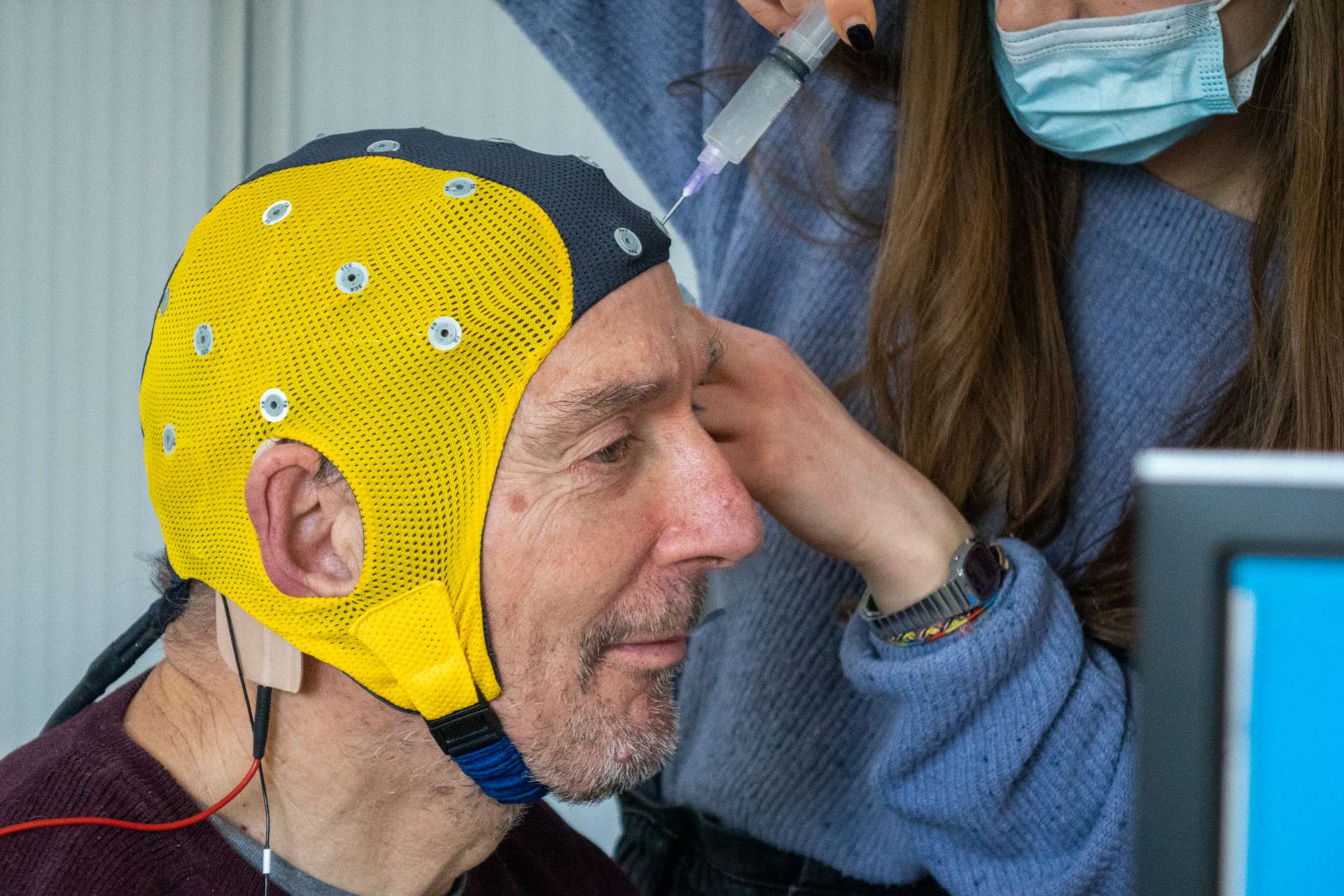University of Kent alumnus and donor, Francis Ball, was diagnosed with Parkinson’s disease five years ago and shares his story of the painful challenges he’s experienced navigating life with his diagnosis and of his excitement about the proposed Parkinson’s Centre for Integrated Therapy.
Francis, 66, is Kent born and bred. He grew up in Dartford and came to the University of Kent to study Physics in 1976 launching his career into IT which took him to London and Canada, where he met his wife, Brenda. They moved back to London to start a family and had two daughters. Francis enjoyed sports such as football, rugby and swimming and regularly travelled to their house in France for holidays. He retired in 2010 and was excited to spend his time travelling and maybe even run a marathon!
Anxiety began to creep in for Francis, on and off over a number of years which started to affect his daily life. Brenda began to notice his reluctance to leave the house, or Francis returning to check the front door was closed a certain number of times. They didn’t think too much of it, seeking help via the usual channels until one day she started to notice that he was walking a little differently, dragging his foot and that his handwriting had got very small. After a referral from the GP to UCLH, Francis finally got diagnosed with Parkinson’s disease in January 2017 and was prescribed Levadopa to manage his symptoms.
Francis describes this difficult time like someone “dropping a bombshell on his life and then after being given a prescription told to go and get on with it”. Things went from bad to worse when, alongside his declining mobility, the effects of the medication had a drastically negative impact on his mental health. He describes becoming much more anxious and depressed eventually reaching the point of being suicidal. It wasn’t until meeting a neuropsychiatrist did Francis realise that anxiety and depression were common symptoms of Parkinson’s disease and also the number one side effect of the medication he was on.
Upon finding the right medication to counteract the side effects of Levadopa and seeing an improvement in his mental health, Francis found that his declining mobility made living in London more tricky. Public transport, museums and theatres were all becoming more difficult to access and so along with Brenda they decided to relocate to Deal. It was here that he met his friend Peter, who also has Parkinson’s disease.
It had been socially limiting not being as mobile and having to time his drugs right so they didn’t wear off whilst he was out and about, but Francis found that meeting Peter, and others with Parkinson’s disease, has been really positive to be able to share information and support one another. Brenda and Peter’s wife, Theresa, have also found support in one another as caregivers to their husbands.
Francis began to try other non-drug therapies such as massage therapy, osteopathy and physiotherapy all of which had some benefit to his symptoms and he has also taken up art again. Concentrating on painting helps his tremor and he has even sold a few of his paintings, donating the money to the Parkinson’s Centre for Integrated Therapy.
The prospect of our new Centre is exciting for Francis as he believes that only offering drug or surgical treatment is like “playing golf but with only two clubs. This Centre will offer a fuller and wider range of opportunities, a full set of clubs to try out”. He is looking forward to trying the range of therapies that will be available, in particular group singing and the cutting edge techniques developed at the University involving neurostimulation. He is currently taking part in some further research of this therapy and is hopeful for some improvement.
Francis and Brenda are delighted to be able to support something that will have such a positive impact on so many people’s lives.
If you would also like to support the Parkinson’s Centre for Integrated Therapy, please visit our donation page.
Please contact us on parkinsons@kent.ac.uk if you are interested in our neurostimulation trials.

